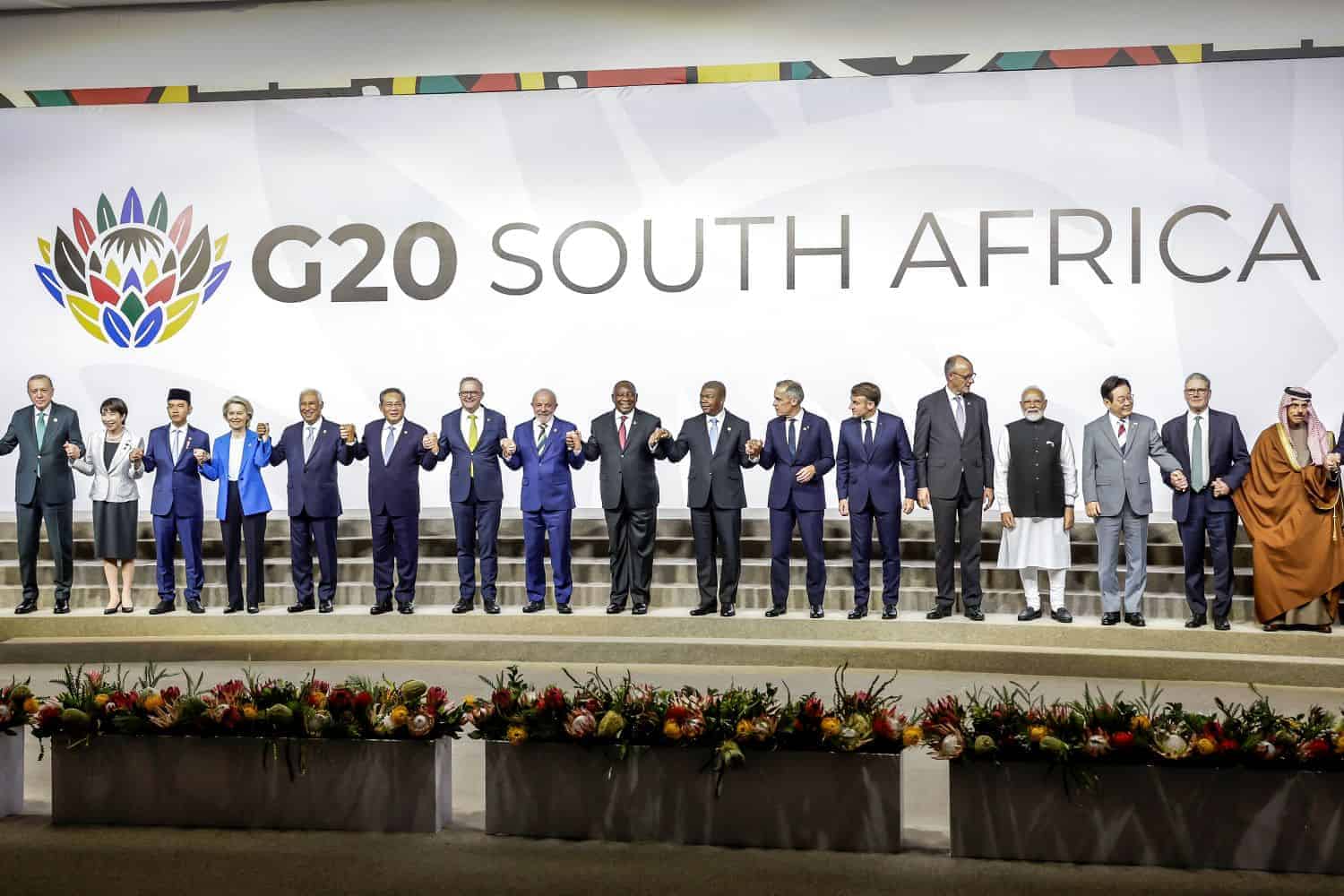The 30-page G20 leaders’ declaration contradicts everything Donald Trump stands for.

G20 member states have sent a clear and unequivocal message to the US: we do not need you to dictate our actions.
The decision to develop and adopt a G20 leaders’ declaration that emphasises solidarity, equality and sustainability worldwide stands in stark contrast to the US approach to these issues and represents the first sign of a growing international consensus that the world can function without the US.
ALSO READ: Minister: ‘SA had to respect all G20 guests, not bend to US changes’
G20 declaration contradicts everything Trump stands for
But the G20 decision couldn’t be the most appealing cup of tea US President Donald Trump would have liked to sip so early on a Saturday morning.
The 30-page G20 leaders’ declaration contradicts everything he stands for.
It states the G20’s commitment to act in accordance with international law and to respect the UN Charter, including the peaceful settlement of disputes.
The meeting condemned all attacks against civilians and infrastructure, a thinly veiled reference to conflicts where civilians are targeted, such as in Gaza, Ukraine, Sudan and the Democratic Republic of the Congo.
US foreign policy
It hit at the heart of the US foreign policy when the leaders reaffirmed that all states must refrain from threatening or using force to seize territory in breach of territorial integrity and sovereignty.
Trump threatened to invade and seize Greenland, Canada and the Gulf of Mexico and is mobilising forces threatening Venezuela, a move that could spark a war in the Americas and new tension between the US and Russia, a supporter of Caracas.
International affairs commentator Doctor Tshwale said the US bid to undermine South Africa bore unintended outcomes for the US and confirmed that the world can reach significant agreements and define a new agenda without this world’s largest economy.
“The immediate and smooth adoption of the summit declaration is a signal of how the G20 sought to demonstrate that the future may no longer be determined by the US, and that strengthens the phenomenon of bipolarity.
“Clearly, by the act of boycott, the US has isolated itself and will never recover as a reliable partner of many countries,” he said.
ALSO READ: South Africa closes G20 Summit – but will it worsen its relationship with the US?
Debt crisis faced by low- and middle-income countries
The G20 leaders resolved to effectively address the debt crisis faced by low- and middle-income countries, triple global renewable energy capacity, adopt low-emission technologies and use critical mineral resources to drive prosperity and development.
Ironically, the declaration was also endorsed by the US’ allies from Europe, Canada, Australia, and even Japan. This demonstrated open defiance against the US, which campaigned to prevent the statement’s adoption.
This development was seen as a shift in the balance of power and the emergence of a new world order, with no dominant power and in which equality becomes the hallmark of operations.
US’ voluntarily dissociation
Political economy analyst Daniel Silke said the US has voluntarily dissociated itself from the G20, in line with the present administration’s reluctance to engage with multilateral institutions.
He said the US favours a bilateral approach – making deals with individual countries not participating in multilateral bodies.
“The US is clearly excluding itself from these multilateral bodies while other countries prefer to follow a multilateral approach in addressing some of the key issues affecting the world. This is a strategic shift from the US, which would make it ineffective on the global stage,” Silke said.
NOW READ: White House accuses South Africa of undermining G20’s founding principles






